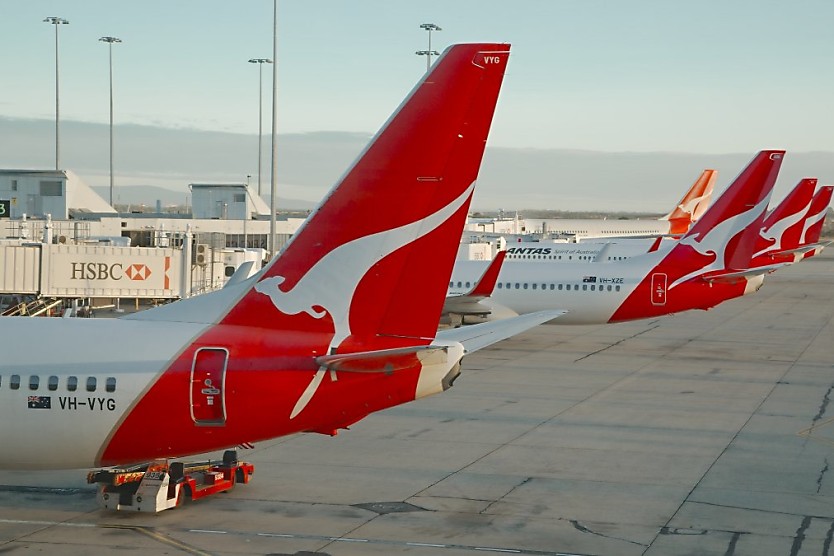The Qantas decision could have a greater impact on the way we work than we think
SHARE THIS ARTICLE

Sorting truth from speculation after the Qantas outsourcing decision. What impact will this have on the way we work?
Justice Michael Lee of the Federal Court of Australia opened his judgment by saying: “Despite some public statements to the contrary, this is not a test case about the industrial phenomenon of ‘outsourcing’; nor indeed is it a test case about anything at all.”
Though it might not be a test case, could the shockwaves of the decision reverberate beyond the affected workers and the coffers of Qantas’ executives?
Getting up to speed
- In November 2020, Qantas announced that its ground handling operations across 10 airports would be outsourced to third parties. The move was estimated to save the airline $100 million per year in operating costs.
- The outsourcing decision was challenged by the Transport Workers’ Union (TWU), of which many of the laid-off staff were members. The TWU claimed Qantas made the outsourcing decision to prevent the future exercise of collective bargaining rights.
- At the time of the outsourcing decision, the employees were prohibited from exercising those rights since the relevant enterprise agreement had yet to reach its nominal expiry date of 31 December 2020.
- Justice Lee said “the operational disruption occasioned by the pandemic meant that the risk/reward analysis that had previously prevented outsourcing being considered a viable option became, for a limited period, viable”.
- In other words, Justice Lee found that, although Qantas made the decision to outsource on legitimate business grounds, it contravened the Fair Work Act in basing the decision, in part, on the circumvention of those union rights.
- The decision was upheld by both the full Federal Court of Australia and the High Court.
Setting a precedent
As predicted by Justice Lee, many commentators overestimated the impact of the proceedings. Some suggested the finding for the TWU might significantly chip away at outsourcing rights. Others thought it might fundamentally change the role of Fair Work legislation.
What’s clear is that Justice Lee’s reasoning turned on the specifics of the case.
In his reasoning, he considered the specific mental state of the relevant decision-makers at Qantas – restricting the ability of others to rely on the judgment without similar evidence as to the intent of the employer.
Despite some conjecture, the decision did not challenge an employer’s right to outsource based on legitimate business grounds.
But, just as some might have overstated the implications of the case, others have gone the other way.
“The Qantas decision is actually quite far-reaching,” said Adam Foster, a partner in Colin, Biggers & Paisley Lawyers’ employment and safety team.
Though the TWU’s case would have failed in the absence of evidence suggesting that a “substantial and operative reason” behind the outsourcing decision was the circumvention of the collective bargaining entitlements of Qantas’ employees, “it wouldn’t take much in the cross-examination of an employer” to uncover such an intention, Mr Foster said.
When the decision is made at least in part in order to circumvent a workplace right, the Qantas judgment could be relied on “across the board where someone has a workplace right that they are planning to exercise or intend to exercise, and they’re terminated”.
“So, it could be taking leave, for example. It could be casual conversion ... it could be any number of things,” Mr Foster said.
Further, as pointed out by senior workplace relations practitioner Jennifer van Bronswijk: “The key implication is that the High Court confirmed the meaning of ‘workplace right’ does include future rights.”
In other words, a claim will not fail simply because the workplace right in question has yet to come to life.
Though the Qantas decision might have failed to validate the fears of those who expected the worst, the judgment could guide future workplace disputes.
“You still have to make the case on the evidence,” Mr Foster added, “but I think what this does is it gives employees a prima facie stronger position if they can connect the dots”.
RELATED TERMS
Outsourcing is the process of contracting a third party from outside a business to carry out tasks or produce commodities that were previously done internally by the staff and workers of the organisation.
When a company can no longer support a certain job within the organisation, it redundancies that employee.
Nick Wilson
Nick Wilson is a journalist with HR Leader. With a background in environmental law and communications consultancy, Nick has a passion for language and fact-driven storytelling.

